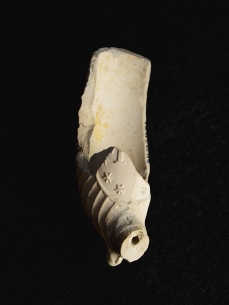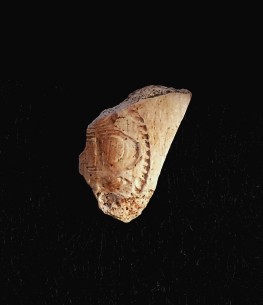#university of groningen
Molecule from nature provides fully recyclable polymers
Plastics are among the most successful materials of modern times. However, they also create a huge waste problem. Scientists from the University of Groningen (The Netherlands) and the East China University of Science and Technology (ECUST) in Shanghai produced different polymers from lipoic acid, a natural molecule. These polymers are easily depolymerized under mild conditions. Some 87 percent of the monomers can be recovered in their pure form and re-used to make new polymers of virgin quality. The process is described in an article that was published in the journal Matter on 4 February.
A problem with recycling plastics is that it usually results in a lower-quality product. The best results are obtained by chemical recycling, in which the polymers are broken down into monomers. However, this depolymerization is often very difficult to achieve. At the Feringa Nobel Prize Scientist Joint Research Center, a collaboration between the University of Groningen and ECUST, scientists developed a polymer that can be created and fully depolymerized under mild conditions.
Post link
by Corey Heyward, Wexler Curatorial Fellow
The two objects seen here are broken fragments of tobacco pipes. Made of kaolin clay, pipes were imported from England and were a common accessory during early America. They easily break and therefore are rarely recovered from archaeological sites in one piece. However, even with the smaller fragments, we can still learn a great deal.
These two examples both exhibit maker’s marks, consisting of the maker’s initials, impressed onto the pipe bowl by the manufacturer. The bowls appear to be stamped and impressed with the initials “TD,” which was a common mark throughout the colonial period and into the 19thcentury.
“TD” likely refers to either Thomas Dormer (1748-1770), who was a pipe maker in London by 1763, or the Bristol pipe maker Thomas Dennis (1734-1781). American-made pipes with the mark “TD” were later manufactured in the 19th century, however we used stem bore measurements, which correspond to production dates, to confirm that at least one of these pipes was made likely around 1720-1750.
 Corey Heyward, the Wexler Curatorial Fellow, first interned in Drayton Hall’s Preservation Department in the fall of 2011 during her sophomore year at the College of Charleston. After completing her junior year abroad at the University of Groningen in the Netherlands, Corey returned to Drayton Hall during her senior year to write her bachelor’s honor essay on the site’s delft tiles. Her in-depth research provided new information about their manufacturing dates and origins, the specific decorative patterns and their possible locations throughout Drayton Hall. Corey completed her M.A. in Anthropology, specializing in Archaeology and Museum Training, at George Washington University. From the beginning of her graduate work in 2014, she also interned in the archaeology laboratory at George Washington’s Mount Vernon where she was trained to use DAACS, assisted in archaeological fieldwork and learned to produce high quality archaeological photographs.
Corey Heyward, the Wexler Curatorial Fellow, first interned in Drayton Hall’s Preservation Department in the fall of 2011 during her sophomore year at the College of Charleston. After completing her junior year abroad at the University of Groningen in the Netherlands, Corey returned to Drayton Hall during her senior year to write her bachelor’s honor essay on the site’s delft tiles. Her in-depth research provided new information about their manufacturing dates and origins, the specific decorative patterns and their possible locations throughout Drayton Hall. Corey completed her M.A. in Anthropology, specializing in Archaeology and Museum Training, at George Washington University. From the beginning of her graduate work in 2014, she also interned in the archaeology laboratory at George Washington’s Mount Vernon where she was trained to use DAACS, assisted in archaeological fieldwork and learned to produce high quality archaeological photographs.
The Wexler Curatorial Fellowship is a two-year, full-time fellowship position to help catalog the Drayton Hall archaeological collection using the Digital Archaeological Archive of Comparative Slavery (DAACS) under the direction of Archaeologist and Curator of Collections, Sarah Stroud Clarke.
What Is It? by Corey Heyward, Wexler Curatorial Fellow The two objects seen here are broken fragments of tobacco pipes.



